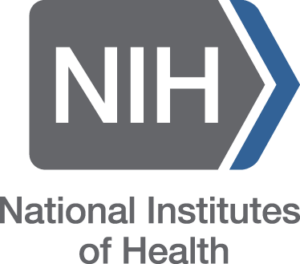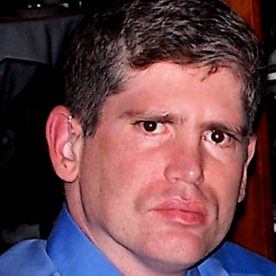Dan Perez’s fierce advocacy will advance knowledge and extend the lives of people with FSHD

 Breathing complications in FSHD can be deadly, but with the lion’s share of research focused on skeletal muscle weakness, breathing disorders remain understudied. That’s why it’s big news that the National Institutes of Health (NIH) recently announced a “Notice of Special Interest” (NOSI) call for research grant applications focused on respiratory complications of muscular dystrophies.
Breathing complications in FSHD can be deadly, but with the lion’s share of research focused on skeletal muscle weakness, breathing disorders remain understudied. That’s why it’s big news that the National Institutes of Health (NIH) recently announced a “Notice of Special Interest” (NOSI) call for research grant applications focused on respiratory complications of muscular dystrophies.
The NOSI resulted from advocacy by FSHD Society co-founder, Daniel Perez, who serves on the federal Muscular Dystrophy Coordinating Committee (MDCC). Perez raised the topic of breathing issues at the MDCC’s June 2022 meeting. In his role at the FSHD Society, he testified, “I have been in touch with thousands of patients with FSHD if not tens of thousands. And I have seen many close friends, board members, family members and constituents die from respiratory failure.”
“FSHD causes a unique asymmetrical failure of breathing muscles where one does not exhale enough carbon dioxide (CO2) and the CO2 in arterial blood builds up through the weeks, into months and across years,” Perez explained. This leads to chemical imbalances in the blood that can, if untreated, lead to premature death. “Symptoms are clear and present – morning headaches, never feeling rested, somnolescence, cough due to secretions, confusion, mixing up words, delirium, arrhythmia, shortness of breath when lying down, feeling like there’s not enough air in the room.”
Perez has personally experienced both long term chronic progressive issues as well as acute respiratory failure due to CO2 retention. “I am convinced that this is an unmet and misunderstood need in measuring disease progression in clinical settings and trials endpoints,” he said. “Improving pulmonary function is important to me and I would think one of the most accurate and sensitive measures for drug trials.”
The NIH’s action “honors the memory of those who have died from respiratory complications from FSHD,” Perez said. “I think that these efforts will rapidly help patients and companies making inroads in treating the disease. I do feel that lives are being cut short. We can save lives, prolong lives, and add quality life years by aggressive and proactive management.”
A greater focus on breathing disorders, Perez said, will help to:
- Educate FSHD patients on respiratory insufficiency, respiratory failure, issues and symptoms, and on when and how to seek help;
- Educate FSHD health professionals on FSHD and respiratory insufficiency, respiratory failure, hypercarbic and restrictive lung disease issues and symptoms;
- Develop guidelines on respiratory care in the normal managed course of the disease;
- Develop guidelines for respiratory care for FSHD patients with undiagnosed or unforeseen hypercarbia (carbon dioxide retention) in the acute-care setting to help the families, doctors and patients navigate their way back to stable condition;
- Encourage longitudinal research on how FSHD patients on non-invasive ventilation (such as BiPAP) do versus age matched patients not on ventilation;
- Ascertain what the standard of care in the ICU/ER acute setting should be.
The NIH’s NOSI on respiratory and sleep complications of muscular dystrophies can be read here. The first submission deadline is September 25, 2022. Applications should be submitted to the NIH Research R01 “parent” announcement (PA-20-185) and follow the instructions in the NOSI for funding consideration through this initiative.
Additional resources on breathing issues in FSHD
- Medical issues with FSHD (see Breathing)
- Respiratory Considerations of FSHD with Dan Wilson, respiratory therapist
- Respiratory Care for People with FSHD, with Lee Guion, respiratory therapist
- Breathing and respiratory health, from 2012 FSHD patient conference


When lying on my back , breathing through my nose I eventually feel the air cut off and then have to breathe through my mouth or swallow .is this related to FSH which I have ?